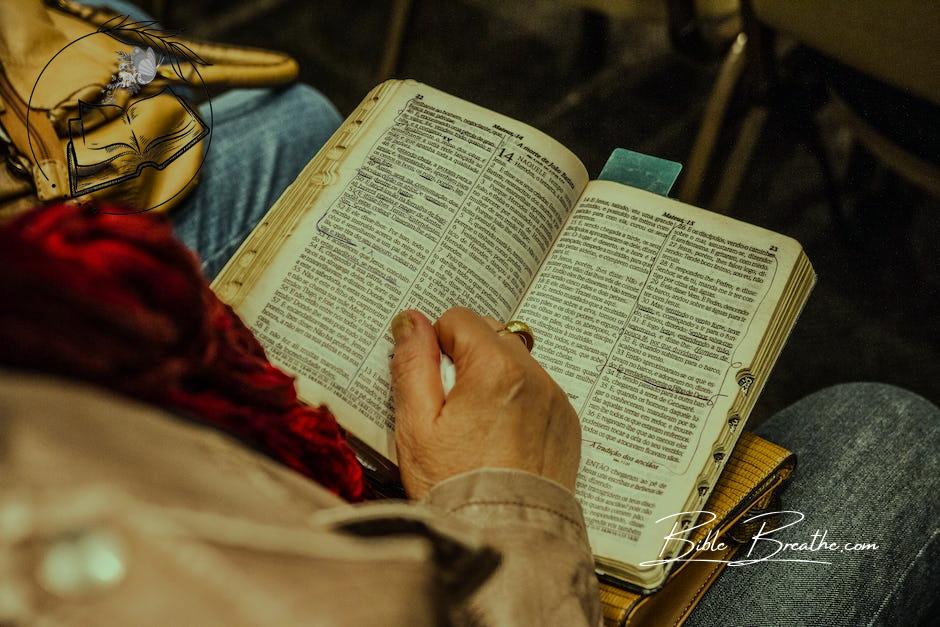Does God Choose Who Will Be Saved?
Now, this is a question that hits you right in the spirit, my friends.
Picture it: You’re in God’s waiting room, and you’re wondering if your name is on that divine list.
It’s like a holy RSVP, isn’t it?
You see, some folks believe in God’s pre-planned guest list, like Calvinism’s A-list.
They say God’s got it all set.
But on the flip side, you’ve got Molinism, where free will takes center stage, like God’s handing out invitations to anyone who’ll take one.
But don’t fret, we’re diving deep into this divine guest list, examining the Scriptures and different takes on it.
Can you choose to RSVP, or is it all in God’s hands?
It’s like trying to solve a heavenly puzzle.
So, join me in this faith-filled journey.
We’ll navigate the path between divine choices and your heart’s desire, and we’ll find what it means to be among God’s Elect.
It’s a soul-searching quest through faith, grace, and the mysteries of divine selection.
🙏🏽✨
Key Takeaways
- The debate between predestination and free will remains an ongoing theological discussion within various Christian traditions.
- Understanding different theological perspectives on whether God chooses who will be saved or if individuals have free will in the matter is crucial for a well-rounded comprehension of this complex topic.
- The importance lies in engaging with various theological interpretations, examining biblical passages, and delving into historical and philosophical contexts to form an informed opinion on the matter.
- Personal reflection and dedicated study on this topic can help individuals discern their own beliefs and grapple with the profound implications that arise from different views.
- Regardless of the theological standpoint one adopts, it is essential to approach this debate with respect, humility, and a commitment to seeking the truth as revealed in scripture and guided by one’s faith.
Unveiling God’s Plan: Does He Handpick Who’s Saved?
When we embark on the journey of faith and destiny, we hit a crossroads: does God carefully choose who gets a ticket to salvation?
Let’s navigate through the theological terrain wrestling with this deep question.
The Calvinist Take: Picking Flowers in God’s Garden
In the vast garden of theology, Calvinism stands tall like a sturdy tree, laden with the concept of predestination.
According to this view, God, in His divine power, handpicks individuals for salvation – a concept known as election.
It’s like a skilled gardener carefully selecting which seeds will sprout into magnificent flowers.
John Calvin, a giant in Christian history, played a pivotal role in shaping and nurturing this belief.
“For he chose us in him before the creation of the world to be holy and blameless in his sight.” – Ephesians 1:4 (KJV)
The Free Will Dilemma: Navigating Our Choices
Yet, amid this perspective, another voice resonates in the theological corridors – the idea of free will.
Like a compass guiding a traveler, free will suggests that individuals have the ability to accept or reject God’s grace.
It’s like a compass providing directions for a ship at sea, guiding but not forcibly dictating the course.
Molinism and the Divine Chessboard: Finding a Middle Ground
Molinism, a thoughtful mediator, steps into the conversation.
Imagine God as a chess player, foreseeing His creation’s moves, yet granting them the freedom to make their own choices.
In this view, God’s foreknowledge intertwines with human freedom, creating a delicate dance of fate and choice.
As we unravel the mystery of salvation, we venture into territories of faith, grace, and the Divine’s intricate workings.
Theological perspectives offer varied lenses through which to view God’s sovereignty, human will, and the deep intersection of predestination and free choice.
While navigating this intricate landscape, let’s seek understanding and wisdom, trusting that the answers lie within the depths of faith.
Remember, the journey of understanding can be as crucial as the destination itself. 🌟
The Divine Choice: Unveiling Calvinist Beliefs
Photo modified by BibleBreathe.com. Original photo by Eduardo Braga on Pexels
In this intricate tapestry of beliefs, Calvinism threads a unique perspective into the age-old inquiry: Does God choose who finds salvation?
God’s Sovereign Penmanship in Salvation
Calvinist belief carves a bold assertion into the theological canvas: the origin of salvation lies in the divine realm.
It’s like an author expertly penning a novel, meticulously crafting each character’s fate right from the start of the story.
Calvinists affirm that God, in His supreme sovereignty, not only extends the invitation to salvation but intricately orchestrates who will embrace this divine call.
For he saith to Moses, I will have mercy on whom I will have mercy, and I will have compassion on whom I will have compassion.” – Romans 9:15 (KJV)
The Chosen Few: God’s Handpicked
At the heart of Calvinism lies the concept of the “elect.” Picture an opulent banquet where a select few hold invitations, personalized and promising their attendance.
In Calvinist thought, God’s elect are these chosen individuals, destined for the heavenly feast of salvation.
This divine choice isn’t hinged on their merits or deeds but purely on God’s divine will.
According as he hath chosen us in him before the foundation of the world, that we should be holy and without blame before him in love.” – Ephesians 1:4 (KJV)
A Scriptural Masterpiece of Predestination
Calvinists meticulously trace threads of predestination woven intricately within the scriptures.
It’s akin to finding foreshadowing in a well-penned novel, providing hints of what’s to come.
They perceive the divine hand shaping individuals’ destinies, drawing them into the warm embrace of eternal grace.
Within this theological landscape, the Almighty assumes the role of a master author, sketching the narrative of salvation and revealing His divine plan to those with hearts open to listen.
The delicate interplay of God’s sovereignty and human free will becomes a subject of deep contemplation.
How do God’s foreknowledge and omnipotence harmonize with our choices in this grand design?
In this realm of thought, the Almighty stands as the master author, unfurling the tapestry of salvation and graciously offering us glimpses into His divine design.
Illuminating Scriptural Support for Predestination
In the deep realm of theology, the foundation in scriptures holds utmost importance, shaping and strengthening our beliefs.
Let’s shed light on the verses that echo the concept of predestination, unveiling this cornerstone of theology.
Ephesians 1:4-5: God’s Choosing
In the sacred verses of Ephesians, we encounter words that distinctly affirm the idea of predestination:
“For he chose us in him before the creation of the world to be holy and blameless in his sight. In love he predestined us for adoption to sonship through Jesus Christ, in accordance with his pleasure and will.” – Ephesians 1:4-5 (KJV)
These words vividly paint a picture of God’s deliberate selection, an ancient blueprint crafted before the foundation of the world.
It’s like an architect meticulously planning a grand design, choosing every element with utmost care and purpose.
Romans 8:29-30: God’s Foreknowledge
Another cornerstone of predestination is found in Romans:
“For whom he did foreknow, he also did predestinate to be conformed to the image of his Son, that he might be the firstborn among many brethren. Moreover whom he did predestinate, them he also called: and whom he called, them he also justified: and whom he justified, them he also glorified.” – Romans 8:29-30 (KJV)
Here, we get a glimpse into divine foreknowledge, where God’s omniscience intertwines with His grand design.
It’s like a skilled artist envisioning the completed masterpiece, already foreseeing the beauty that will unfold on the canvas.
In these verses, we find the seeds of predestination, sown in the fertile soil of the Bible.
They affirm the belief that God, in His unfathomable wisdom, predestines and calls His chosen ones.
As we navigate the profound waters of theology, may we reflect on these passages, understanding that divine sovereignty and human will dance in a harmonious, intricate ballet.
🌿
The Choice Is Yours: Exploring Free Will Biblically
Photo modified by BibleBreathe.com. Original photo by cottonbro studio on Pexels
Within the intricate tapestry of theological beliefs, a pivotal thread unravels the ageless question: Does God choose who experiences salvation?
God’s Open Invitation: John 3:16
For those who champion free will, a cornerstone of their conviction lies in John 3:16, a verse often dubbed the gospel’s essence.
It’s like a heartfelt invite, open to all, no matter their background or actions.
For God so loved the world, that he gave his only begotten Son, that whosoever believeth in him should not perish, but have everlasting life.” – John 3:16 (KJV)
The Embrace of Grace: Titus 2:11
Titus 2:11 further underlines the all-encompassing grace of God, like a wide embrace welcoming all humanity, offering salvation to anyone who embraces it.
“For the grace of God that bringeth salvation hath appeared to all men.” – Titus 2:11 (KJV)
A Call to All: 1 Timothy 4:10
In 1 Timothy 4:10, the call to salvation is depicted as expansive and universally within reach, urging all to partake in the grace that leads to eternal life.
“For therefore we both labour and suffer reproach, because we trust in the living God, who is the Saviour of all men, specially of those that believe.” – 1 Timothy 4:10 (KJV)
From this theological vantage point, the scriptures present an expansive embrace, portraying God’s grace as reaching out to every nook and cranny of humanity.
The invitation to salvation shines like a radiant beacon, inviting every soul to make a choice, to believe, and to become a part of the eternal tapestry of faith.
Striking a Delicate Balance: Navigating Predestination and Free Will
Photo modified by BibleBreathe.com. Original photo by Miguel Á. Padriñán on Pexels
As we roam through the intricate corridors of theological thought, we face a fascinating crossroad: how do we bring together the divine idea of predestination and the cherished human gift of free will?
Let’s embark on this philosophical adventure, seeking insight at the heart of faith.
Divine Foreknowledge: God’s Timeless Vision
At the heart of this reconciliation is God’s all-knowing foreknowledge.
Picture God standing on the peak of a mountain, beholding the vast expanse of time in a single gaze.
He knows the choices we will make, yet this knowledge doesn’t force our hand.
It’s like a wise elder foreseeing the paths their children might take, offering guidance without dictating the journey.
Molinism: God’s Expert Chess Moves
Molinism steps into the theological arena as an attempt to harmonize the melodies of predestination and free will.
Imagine God as a skilled chess player, deftly navigating the intricacies of human choices.
He knows the possible moves, but it’s we who move the pieces.
In this view, God’s sovereignty doesn’t squash our freedom; rather, it elegantly coexists, allowing us to make choices while acknowledging God’s higher plan.
“We may throw the dice, but the Lord determines how they fall.” – Proverbs 16:33 (KJV)
Embracing the Paradox: A Faithful Journey
Reconciling these concepts is like blending two colors on a canvas—distinct yet merging into a beautiful hue.
It’s an enigma, a paradox, a mystery woven into the tapestry of faith.
We journey through this maze, guided by trust, believing that God’s ways surpass our complete comprehension.
In the vast fabric of belief, predestination and free will are threads intricately woven.
They don’t untangle each other; rather, they adorn the fabric of our faith, making it strong and vibrant.
Let us embrace this beautiful tension, finding comfort in the intertwining of God’s sovereign plan and our sacred freedom.
🌌
Frequently Asked Questions (FAQs) About Does God Choose Who Will Be Saved
Why does God predestine some and not others?
The concept of predestination is a complex theological topic.
Some Christian traditions believe in predestination, while others emphasize free will.
It’s rooted in the idea that God, in His sovereignty, has a plan that includes the preordination of some individuals for specific purposes.
How can God want all to be saved but predestine only some?
This theological question touches on the concept of divine sovereignty and human free will.
Different Christian denominations hold varying perspectives.
Some believe in predestination, while others emphasize free will.
The balance between these concepts is a complex theological issue with different interpretations and viewpoints.
What is the difference between being chosen and being predestined?
Being chosen involves selection for a purpose or role, often implying an active decision.
Predestination, however, suggests the belief that God predetermined outcomes or destinations beforehand, usually tied to theological concepts regarding God’s sovereignty and foreknowledge.




